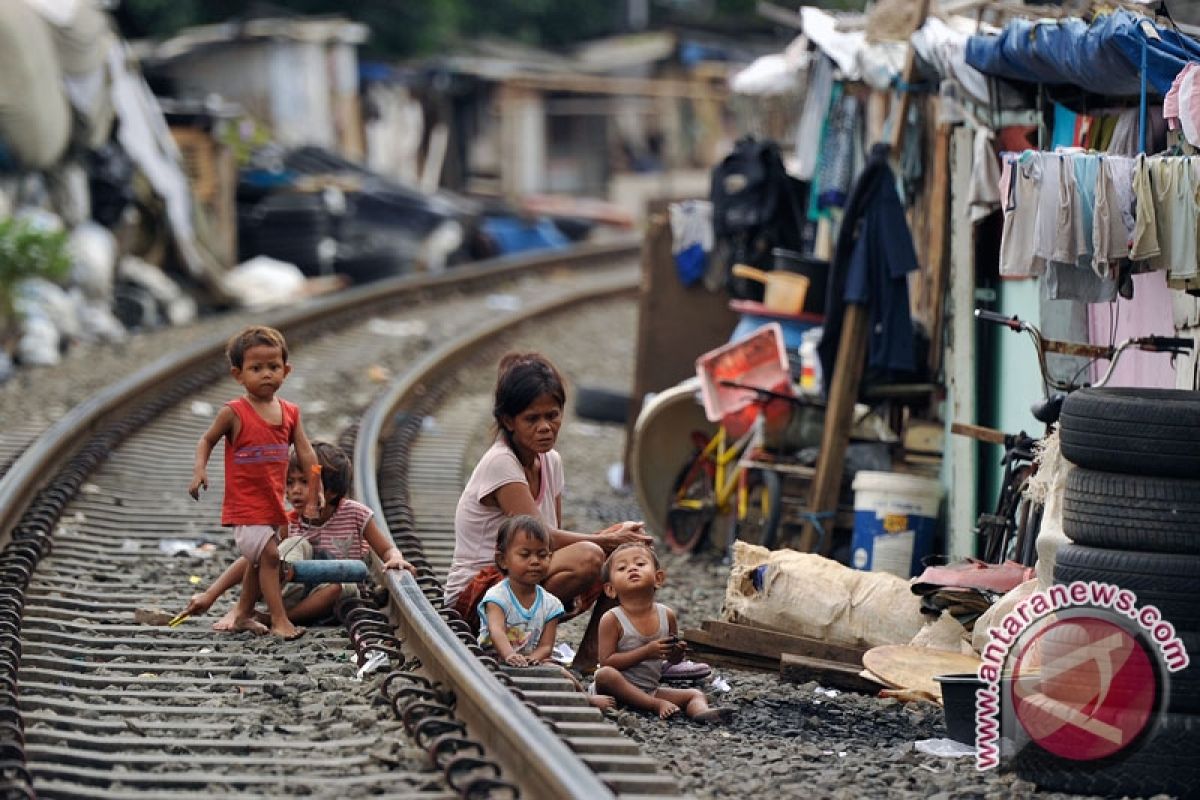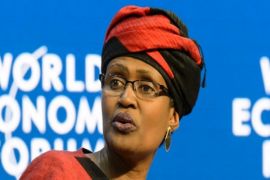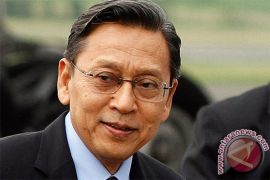This is because the global crisis in the United States and Europe has the potential of causing an increase in the number of poor people in the world, including in Indonesia.
Absolute poverty or destitution is inability to afford basic human needs, which commonly includes clean and fresh water, nutrition, health care, education, clothing and shelter.
The number of poor people in Indonesia is still high and therefore the government is expected to speed up its poverty eradication efforts.
National Development Planning Board (Bappenas) director of cooperatives and small and medium businesses empowerment Adhi Putra Alfian in a written statement on Tuesday said around 13 percent of Indonesian people were still living the below poverty line.
Adhi Putra said the figure indicated that the target of reducing the percentage of poor people to 8 to 10 percent had yet to be achieved optimally.
The government hopes to cut the poverty rate by 8 to 10 percent by 2014 but currently its priority was to lower the poverty rate which stands at 12 to 14 percent now.
Therefore, Adhi Putra said, in an effort to anticipate and overcome the global crisis that would likely hit Indonesia, the implementation of the Accelerated and Expanded Indonesian Economic Development Master Plan (MP3E) and the National Plan of Action for Poverty Eradication Program (RAN-PPK) should be sped up.
Eradication poverty with the "business as usual" approach was no longer acceptable, Adhi said in the statement.
"The implementation of MP3EI is expected to encourage the creation of employment and expansion of employment opportunities to speed up the reduction of the national poverty rate," Adhi said.
He said the government at present was reordering the matrix of RAN-PPK which originally has 14 points into five clusters in order that all activities could be sharper and more specific.
According to him, the government in 2013 would step up various entrepreneurship practices of small and medium businesses (UMK), the UMK access to capital, and UMK production quality.
The government would also encourage the increase of new entrepreneurs, human resources competitiveness, and other motivating factors that could overcome poverty and unemployment.
President Yudhoyono has said the government mission target in 2011 was to encourage and speed up economic growth supported by proper management and synergy between central and local Government.
The target is economic growth of 6.4 percent, 5.3 percent inflation and to reduced poverty to 11.5 to 12.5 percent.
Meanwhile, the Institute for Development of Economic and Finance (Indef) predicted that Indonesian economic growth in 2011 would reach 6.5 percent or in accordance with 2011 State Budget target, while the economic growth in 2012 was predicted to reach 6.1 - 6.3 percent.
"But the problem is that the achievement is just still limited to figures, and in a real condition unemployment and poverty rate is still high," Indef Director Enny Sri Hartati said.
She said Indef predicted that unemployment rate in 2012 will drop a bit to around 6.3 percent.
The unemployment rate in the past three years showed a downward trend from 8.0 percent in 2009, 7.3 percent in 2010, 6.7 percent in 2011, but the decline did not equal to economic growth achievement over 6.0 percent in 2010 and 2011.
Poverty rate in 2012 is predicted to be at 11.7 percent, while in the past three years it showed a downward trend from 14.2 percent in 2009, 13.3 percent in 2010, and 12.5 percent in 2011.
Therefore President Yudhoyono has said the government`s efforts to reduce poverty by creating more jobs were not merely a discourse because it had already taken concrete steps to achieve the goal.
According to the president, the government had formulated strategies and policies to take concrete steps across the country in an effort to correct or improve the situation.
President Yudhoyono also said that to overcome three major problems namely unemployment, poverty and foreign debt, the government had created many job opportunities and launched educational, health and housing development programs.
Poverty eradication program in Indonesia, particularity in West Nusa Tenggara (NTB) province, is also supported by Australia through the Australian Government`s Aid (AusAID) program.
Australia has made a commitment to provide A$215 million over five years to the Indonesia`s National Community Empowerment Program (PNPM), supporting the Indonesian Government`s effort to lift its people out of poverty.
In NTB province, Australia is supporting improved access to health and education through the PNPM Generasi program, now operating in 48 sub-districts.
"Our support to PNPM Generasi will increase access to health and education for local communities, particularly children, so they can live healthy and productive lives," AusAID Deputy Director General James Batley said in October this year.
Batley said Australia`s support to education in NTB has made schooling more accessible for children in the community.
Australia supported the building of 149 schools across the province, creating an estimated 26,000 school places and significantly increasing access to education in a bid to help reduce poverty in Indonesia.
President Yudhoyono has also said that although poverty was inevitable and pretty substantial, the government would continue to try as best as it could to systematically reduce the number of poor people.
(Uu.O001/HAJM/F001)
Reporter: by Otniel Tamindael
Editor: Priyambodo RH
Copyright © ANTARA 2011












